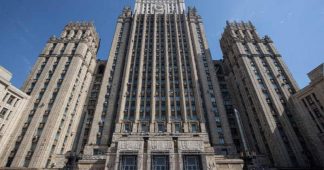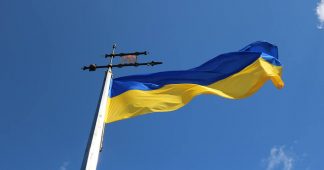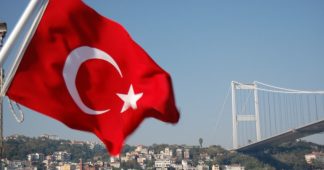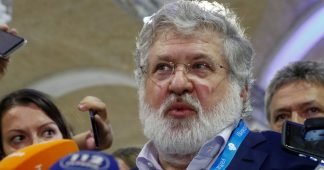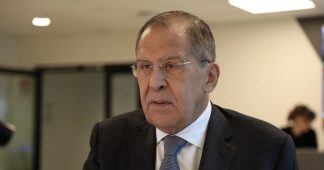Ukraine’s Zelensky Urges NATO to ‘Immediately’ Accept Kiev Into Alliance
by Ilya Tsukanov
Jun 7, 2021
photo: © AFP 2021 / YURIY DYACHYSHYN
Kiev recently ramped up a diplomatic campaign to join the Western alliance, despite NATO rules prohibiting entry to countries with territorial disputes with neighbours or those suffering from civil wars. Last month, a White House spokesperson said the US “supports” Kiev’s NATO ambitions, and that the alliance’s door is “open” to new aspirants.
The issue of Ukraine’s accession to NATO is a matter of utmost importance to Kiev and must be addressed “immediately,” Ukrainian President Volodymyr Zelensky has suggested.
“I think that if we are welcome in NATO, if they really want to see us as a member, then it’s no use looking into the binoculars, into some distant future and discussing this future. The issue should be resolved immediately. We are in danger right now, our independence is at stake right now, and it is now that we need help,” Zelensky said, speaking to Axios.
The Ukrainian president went on to suggest that while he believed Kiev would eventually join NATO, many Ukrainians “increasingly don’t believe this as strongly as they used to.”
Zelensky added Ukraine should have already received a NATO Membership Action Plan (MAP) – a mechanism approved in 1999 allowing current alliance members to review formal applications of aspiring members. Among the MAP’s requirements are a willingness to settle any international, ethnic or external territorial disputes by peaceful means, an ability to contribute to the alliance’s missions, and commitments to the rule of law and the democratic control of the aspirant’s armed forces.
NATO recognized Ukraine as an ‘enhanced opportunities partner’ in late 2020, and the US and its allies, including Canada and the UK, have provided training and military assistance to Ukrainian forces since 2014.
In the aftermath of the breakup of the USSR, Ukraine established a non-bloc policy prohibiting it from joining any alliance. Kiev briefly dropped this policy in 2008, and reestablished it in 2010 after the election of Viktor Yanukovych. After Yanukovych was overthrown in a coup in early 2014, Crimea’s succession and reunification with Russia and the breakout of hostilities between Kiev forces and pro-independence forces in eastern Ukraine, the new authorities in Kiev again set a course for joining the alliance. The Petro Poroshenko administration formally announced plans to negotiate a MAP in 2017. Zelensky reiterated Ukraine’s needs for a MAP in October 2020, and again in the spring of 2021 after building up troops near the Donbass breakaways and amid fears of a full-scale resumption of hostilities.
In April, Kiev ramped up its diplomatic pressure on NATO, with Ukraine’s ambassador to Germany warning that the country may have to build nuclear weapons if it can’t join the Western alliance.
Last month, White House deputy press secretary Karine Jean-Pierre announced that the US ‘supports’ Ukraine’s ambition to join NATO in principle, and that “the Biden administration is committed to ensuring that NATO’s door remains open to aspirants when they are ready and able to meet the commitments and obligations of membership and contribute to security in the Euro-Atlantic area.”
NATO was created in 1949 during the intensification of the Cold War between the United States and the Soviet Union, ostensibly to prevent a Soviet invasion of Western Europe. In 1990, at the end of the Cold War, US Secretary of State James Baker made a verbal promise to Soviet leader Mikhail Gorbachev not to expand “one inch eastward” beyond the former East Germany following its annexation by the Federal Republic. Since then, the alliance has expanded into every former member of the Moscow-led Warsaw Pact alliance, as well as three Baltic republics of the former Soviet Union, and four republics of the former Yugoslavia. Russia has repeatedly expressed concerns about NATO’s continued eastward expansion, and has pointed to the alliance’s penchant for offensive, rather than defensive, operations in conflicts including Kosovo, Libya and Afghanistan
Published at sputniknews.com
